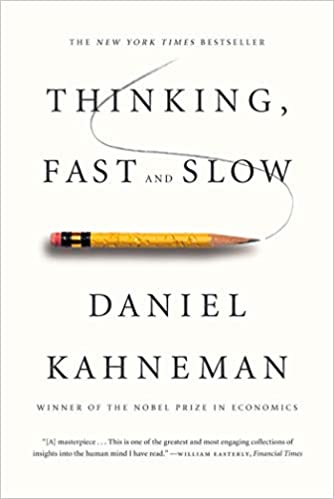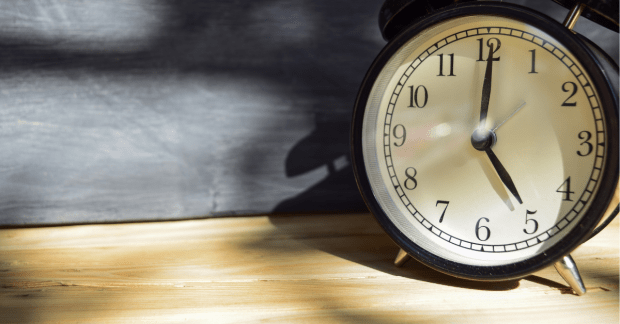Waking up at 5 am and getting started on the day is a practice that many successful freelancers and entrepreneurs swear by. Richard Branson, Twitter boss Jack Dorsey, Apple CEO Tim Cook all wake up each day at 3:45 am, and many other successful movers and shakers start their days early and use this time productively.
A survey on successful people has shown that 90% of people are up before 6 am, and around 50% of all self-made millionaires have an equally early start.
There are some serious advantages of being an early riser. After all, this early morning time-space is utilized by many successful people, so there must be something to it. So let’s check out the pros and cons of being an early riser to see if this is something we need to do in order to be successful.

Thinking Fast and Slow
by Daniel Kahneman
⏱ 12 minutes reading time
🎧 Audio version available
The advantages of getting up at 5 am
- It is a time of fewer distractions. While the rest of the world is asleep, it gives you the space to spend your time how you like.
- It is also a great time to catch up with others around the world that are operating in different time zones.
- Taking exercise such as running or visiting the gym can be carried out in the early morning before the area is crowded and busy.
- It enables you to wake up properly before you start your daily tasks.
- Getting up early gives you time to have a proper breakfast, so you don’t have to go without your healthy breakfast or eat at your office.
- Getting up early helps you keep control of your day, and with a busy schedule, you cannot afford to waste time lying in bed.
Studies have shown that successful people are generally linked to being early risers. Still, before you decide to jump on the morning bandwagon yourself, you need to consider your own inclinations and physical makeup.
Are you an early bird or a night owl?
50% of us are somewhere in the middle, but some people are naturally early risers, whereas others function better later in the day.
Researchers have found that one in four people are genetically programmed to rise later and work later, so if this is you, your natural circadian rhythms are at play, inherited from your parents.
It is not all bad news for night owls. If you fall into this category, you may be more creative than your early bird counterparts. However, there is equally no shame or loss of intellect if you are a night owl, and if working late into the evening suits your body rhythms, you should continue to embrace this in order to maximize your full potential.
So why are early birds seen as being so successful?
People who rise early are more aligned to the timetable of the business day. So if you are bright-eyed and bushy-tailed at 5 am, you will have an advantage over your night owl counterparts, which will still be feeling groggy and tired in the morning.
In addition, it is essential to remember that not everyone who gets up early is successful any more than getting up late makes somebody a failure. In addition, getting up early and wasting time on social media or TV will not make you any more successful than someone who is peacefully asleep at the same hour.
If you don’t use your time wisely, there is little point in being an early riser.
So should you switch to being a morning person in order to improve your business?
If you are part of the 50% of people who fall somewhere in the middle of being an early bird or a night bird, getting up early does have serious advantages. However, it would be best if you planned for this, by ensuring you get to bed early enough to compensate and by trying out your new daily timetable to find the optimum time for your schedule.
Burning the candle at both ends is unsustainable and will result in you feeling tired and washed out all day. So set your clock at a reasonable time in the evening and aim to get your 8 hours before the alarm clock sounds the next morning.
For the 1 in 4 of us who function better later in the day, attempting to emulate Richard Branson and co. by getting up at 5 am is a big mistake.
Night owls have longer circadian rhythms.
People who function better later in the day tend to have longer circadian rhythms. This means that their internal clocks run for later and longer, and if there is no outside stimulation such as an alarm clock, they will sleep for longer and much later.
For example, a late-night person will still produce the sleep hormone melatonin at 7 am. But unfortunately, this will mean that they are still groggy and half-asleep when their early bird counterparts have already worked out and had breakfast and are now getting started on the day’s work.
Related: The Secret to the Perfect Sleep and Easy Morning Wake-Up
The best solution is to find your natural balance.
If your body and mental functioning can handle it, getting up early is an excellent idea as it kicks off the day to a good start and enables you to get things done. However, if the idea of 6 am fills you with horror, it might be that you are just unsuitable for this regime, so you should probably forget about it.
Interfering with your biological rhythms can have a detrimental effect on health and stress hormones in the same way as is experienced by shift workers.
The best solution is to find your natural balance and to ensure that the time you spend working is the best for your natural productivity.
What Is Snapreads?

With the Snapreads app, you get the key insights from the best nonfiction books in minutes, not hours or days. Our experts transform these books into quick, memorable, easy-to-understand insights you can read when you have the time or listen to them on the go.


